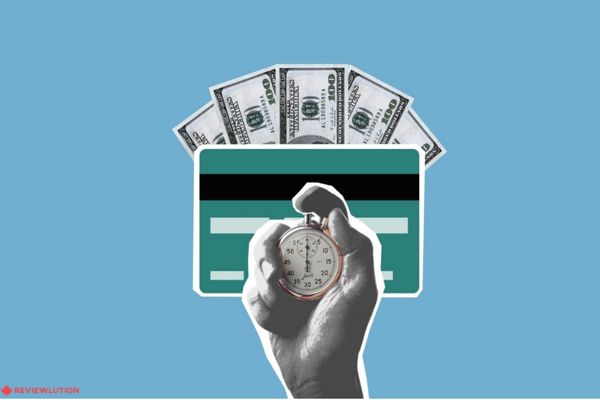How Much Money Should I Have Saved by 25?
When you’re 25, there’s a lot on your plate – you might be finishing up a degree or stepping into the workforce. But one question that’s probably lingering at the back of your mind is: how much money should I have saved by 25? Well, the answer depends on a few factors, and I’m here to give you an idea of what that number is by looking at the statistics.
Let’s check it out!
What’s a Realistic Savings Rate at the Age of 25?
If you’re not a trust fund baby, you probably don’t have a ton of disposable income when you’re first starting out in your career. That’s why it’s essential to be smart about your savings rate – and to start saving early!
First, let’s talk about the median salary for full-time workers. According to Statistics Canada, the salary for 20 to 24-year-olds is $704 per week or $36,621 per year.
So, how much of your salary should you save? Well, a good rule of thumb is to save 20% of your income. So if you’re in your early twenties and earn the median salary, you should have about $20,000 in your bank account after a few years. In turn, this money should be for any emergencies, retirement, or unexpected expense.
However, if you’re not even close to $20,000, don’t panic! You have plenty of time to catch up, and believe it or not, according to Statista, the average Canadian household net savings for 2021 were only $9,972. With the average Canadian salary being a little over $56,400 in 2022, it’s obvious that Canadians aren’t so big on saving!
To help put things in perspective, here’s a table with the average Canadian savings by age from the last survey in 2019:
| Age Range | Savings |
| Under 35 | $56,307 |
| 35 – 44 | $104,159 |
| 45 – 54 | $214,320 |
| 55 – 64 | $298,808 |
| 65+ | $318,520 |
Average Savings Rate of Canadians
Although the goal is to save ten times your income by age 67, many people consider that a long shot. Fortunately, it isn’t as frightening as it sounds!
But for now, how much should you be saving if you’re an individual or an economic family (two or more people living together and related to each other)? Let’s take a look at the numbers for single individuals:
| Age Range | Savings |
| Under 35 | $58,900 |
| 35 – 44 | $125,900 |
| 45 – 54 | $350,500 |
| 55 – 64 | $446,500 |
| 65+ | $384,100 |
To compare, let’s look at the average savings by age for economic families:
| Age Range | Savings |
| Under 35 | $133,400 |
| 35 – 44 | $272,100 |
| 45 – 54 | $564,400 |
| 55 – 64 | $809,100 |
| 65+ | $739,200 |
* These tables don’t include debt and non-financial assets
Statistics Canada has been calculating the average savings rate of Canadians since the 1960s. Therefore, based on their data, the average household savings rate for the first quarter of 2021 was 13.7%, but has since fallen to 8.1% in the first quarter of 2022.
Of course, these numbers are not at all surprising, considering inflation and higher bills.
How to Speed Up Your Savings?
Now that you have all the statistics, you’re thinking about how you can fast-track your savings. Luckily, I’ve got just the tips for you!
Set a Financial Goal
Before deciding how much to save per month, it’s important to have a specific goal in mind. Do you want to buy a house? Save for retirement? Go on a dream vacation? Once you know what you’re saving for, it will be easier to stay motivated and make wise spending decisions.
Stick to the Determined Percentage of Salary You Wish to Save
Once you’ve set your desired goal, it’s time to figure out how much you need to save to reach it. As a recommendation, aim for 20% of your monthly income. However, you may want to save more depending on your objectives. Whatever the case, ensure you don’t stray too far from your determined percentage and get yourself stuck in financial difficulties.
Pay off Credit Cards Before Student Loans
If you have both credit card debt and student loans, it’s crucial to focus on paying off your credit cards first. Since credit cards typically carry a high interest rate, they might set you back further. Therefore, you should tackle your credit cards first and get rid of this debt as soon as possible, since your student loans don’t usually have high interest.
Find a Cheaper Health Insurance Plan
Unsurprisingly, health insurance is one of those necessary expenses that can really eat into your budget quickly. If you’re not happy with your current plan, or you’re still on a parent’s plan, get out as soon as you can. Do some research and see if there are any cheaper options providing good coverage.
Pick up a Side Hustle
Side hustles are another great way to boost your savings. If you have some extra time and energy, why not make some extra money? Even if your hustle is not necessarily lucrative, you can still use the money to pay off some debts. Plus, you can even work from home!
Save More as You Earn More
As you get older and climb the career ladder, you’ll (hopefully) earn more. Consequently, you should increase your savings rate. If you can manage to save 20% or even 30% of your income, you’ll be in good shape when it comes time to retire, and you’ll have accrued enough value for your nest egg.
Download Budget Tracker Apps
Last but not least, visit the AppStore and find some budgeting apps! There are tons of great apps out there to help you track your spending and saving. Plus, they give you a clear picture of your finances and guide you toward making better financial decisions.
Conclusion
As you know, saving money can be complicated. However, if you start early and be strategic, you’ll be well on your way to reaching your goals and achieving financial freedom.
After finding the answers to questions like: “How much money should I have saved by 25”, “How do I boost my savings”, and “What are the average Canadian savings?”, you can hopefully make rational decisions and beat most Canadians in the savings game.
FAQ
Although there is no magic number, a good rule of thumb is aiming for 20% of your income. Of course, your saving habits largely depend on your lifestyle choices and expenses.
By your 30s, you should’ve saved one times your annual income. However, you should still continue to save 20$ of your monthly income.
By 27, you should’ve saved close to one time your annual income.
The amount a person has saved will depend on whether or not they’re in an economic family, how much they earn, and what their lifestyle looks like.
If you’ve worked for a year, you should’ve saved around $7,000 by 21, provided you save 20% of your salary.
To save 10k in a year, you should lay out your financial goals, stick to your determined savings rate, pay off your credit cards before your student loans, find a cheaper health insurance plan, and get a side hustle.
Ideally, you should aim to put aside 20% of your paycheck and invest it in your retirement income, emergency fund, and the like.
You should aim to save around 20% of your monthly income.












